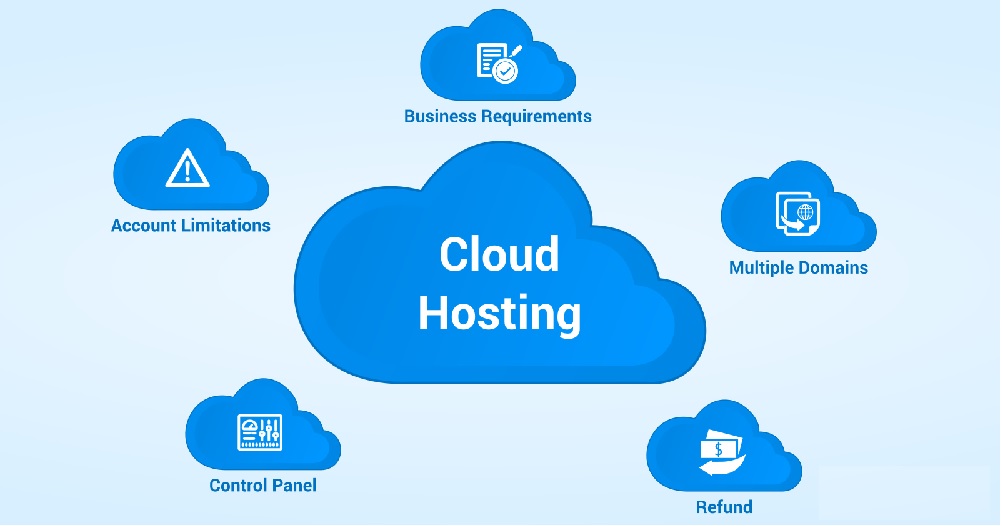With the tremendous increase in the usage of the internet from the past few decades the demand for fast internet services also increased. It becomes the essential parameter as everyone is looking for high speed internet services with better security. This growing demand leads to the exposure of the new technology in the workplace i.e. Cloud Server India.
Well! Everyone might have heard about Cloud Server. Still, many don’t know exactly what it is and how it works. In this post, we’ll try to explain to you the concept behind cloud servers India and how they work.
Cloud Server India: What is it and how does it work?
Before moving forward in detail about cloud server let’s take a quick view about that. Simply stated, a cloud server is a virtual server running in a cloud computing environment. It is built, hosted and delivered by a cloud computing platform with the help of the internet. So that it can be accessible remotely. Cloud Servers are also popularly known as virtual servers. Cloud servers have all the software they need to run and function independently.
What is a cloud server?
As we already said, they are virtual servers that run in a cloud computing environment and can be easily accessed by unlimited users whenever required
These servers are developed by using virtualization software which is known as a hypervisor. It is used to divide a single physical server into multiple virtual servers. For creating a virtual server a hypervisor abstracts the processing power of the server and pools them together.
Likewise physical servers, cloud servers perform similar functions like storing data and running applications. As cloud services are hosted by third-party providers, they deliver computing resources over a network, most often through the internet.
Basically, the main function of a cloud server is storage. It is a highly powerful virtual IT infrastructure that can effortlessly host applications, data, information, and other components.
Several enterprises use infrastructure as a service model to process large workloads or store extensive data and information. They can easily access any of their functions stored on a cloud server via an interface. They are essentially IaaS based models.
How does a cloud server work?
The most simple way to create an imagination of the cloud in your mind is not as one single structure or location, but as a bundle of electronic structures. The combination may store applications, data, information, and more across various locations and computers.
Businesses choose to rent space on virtual servers in the cloud to save their on-premises space and money. These financial savings come with cloud server includes removing the cost from capital expenditure and avoiding expenses for maintenance and updating. Small businesses especially need to be more careful before any expenditure.
This type of working process is beneficial for the cloud server providers too. As they can smoothly provide the same service to multiple clients.
The most common use of cloud is the storage of resources. But with rise in speeds, bandwidths, and falling costs, the cloud has also been one of the main factors in the growth of anything as a service (XaaS). Apart from that, cloud has also the ability to host software (SaaS), unified communications (UCaaS) platforms and more.
Another influential factor of the cloud is that you are not limited to the amount of data you can store or actively use, as you would be with conventional hardware options. Instead of paying for anything outright, you can rent or lease solutions as per your requirement on a monthly or yearly basis.
Benefits of cloud servers
The choice to use a cloud server will rely on the requirement of the organization. It also depends on its specific application and workload requirements. Some potential benefits include:
Ease of use
An administrator or a cloud service provider can provision a server in a jiffy. With a public cloud server, an enterprise does not need to worry about the maintenance, server installation, or other tasks that come with owning a physical server.
Globalization
Public cloud servers can globalize workloads. With a traditional centralized data center, admins can still access workloads globally, but due to geographically distant users network latency and disruptions can reduce performance. By hosting duplicate instances of a workload in distinct global regions, organizations can benefit from faster and often more reliable access.
Cost and flexibility
Cloud servers follow a pay-as-you-go model.
Conclusion
Thus, after reading this post you must understand the cloud server and how it is helpful in moving your workloads to the cloud. Whether you need a private, public, or hybrid cloud solution, you will get the help to develop the optimal solution for your business needs.



